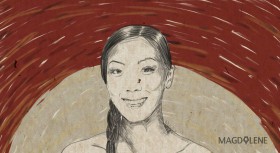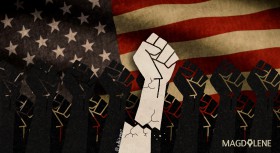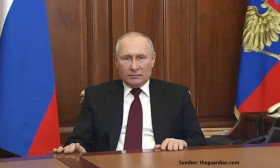Music is not usually what comes to mind when you talk about gender inequality. After all, women musicians have thrived in Indonesia and globally for as long as the music industry has existed.
But delve deeper into the dynamics and intricacy of the commercial music industry, and a world of exploitation, discrimination, sexism, harassment and even violence is revealed. This was the gist of the discussion held recently during the launch of the Bersama Project, a platform to support gender equality through music and arts on July 2nd.
The Bersama Project groups musicians, artists, academicians, activists and the NGO Search for Common Grounds. It is coordinated by musician Kartika Jahja, ethnomusicologist Rebekah Moore, and film director Flo Hadjon. Through music and art, the project hopes to create a harmonious collaboration between men and women, so that a healthy relationship between genders can be built to provide equal rights and opportunities.
Its pilot campaign is #1Voice4Women, a series of short films presenting live performance and interviews with four female musicians and their bands. In the videos, Bonita of Bonita and the husBAND, Kartika Jahja from Tika and the Dissidents, Teraya Paramehta of the Wonderbra, and rapper Yacko shared their experience in being exploited, marginalized and harassed in the music industry.
Participated by musicians, artists, academicians and activists, the recent roundtable discussion aimed to find “Creative Intervention for Gender Equality”. The participants agreed that gender equality is highly needed in the music industry, not only for women but also for men. Their main concern was that in the industry women are still judged by their appearance rather than their musical skills and talents.
Women in Arts
Wening Gitomaryo, a music journalist from Rollingstone Indonesia magazine, said there is an inherent bias against women in the art industry.
“We use the term ‘sastra wangi’ (the fragrant literature) or ‘sastra selangkangan’ (the groin literature) to refer to women writers who write boldly when exploring sexuality,” she said.
But she also questioned the dearth of female artists with interesting perspective: ”I’ll be very happy to find women who are eloquent to talk about matters that they care about – Rollingstone has a hard time finding women who have interesting perspectives.”
Kartika dismissed the perception that Indonesian women are too timid to enter into the art or music industry, arguing that it is because they live in a culture that holds them back. And even those who are in it are often seen as not carrying as much weight as their male counterparts.
“Most of the time women’s opinion tends to be ignored compared to men’s. Women artists won’t be able to change public perception if people keep seeing them as unimportant and insignificant.”
Can the arts be a medium to bring change to our society? Possibly, said Bersama Project co-founder and project manager Rebekah Moore, but it is not so simple.
“To use only one medium to change an entire culture is impossible. We need to go through the process, and creative intervention is one of the first steps. We need to direct our aims then confront the problems through music, and later try to find the solutions,” she said.
Savina Hutadjulu, a musician and an activist, said rather than using arts as mere “accessories”, the project can promote change in small and incremental ways that bring real impacts.
“For example, we have some area with a lot of children working as sex workers. We go there so that we can directly touch the victims..”
Academic and rock singer Teraya stresses on the effectiveness of art in changing people's mindset: “To say that I’m a feminist, a lecturer in a university doesn’t make me free from patriarchy.”
“Personally, what changes me is literature. To have a reflective impact from the books I read made me realize how powerful art really is. We can use art, in any form, to challenge public opinion.”
The discussion ended at the breaking-of-the-fast time and continued with the premiere of the #1Voice4Women videos. It was ended with live music performance by the musicians featured in the video campaign.
*Photo by Iman Fattah









Comments